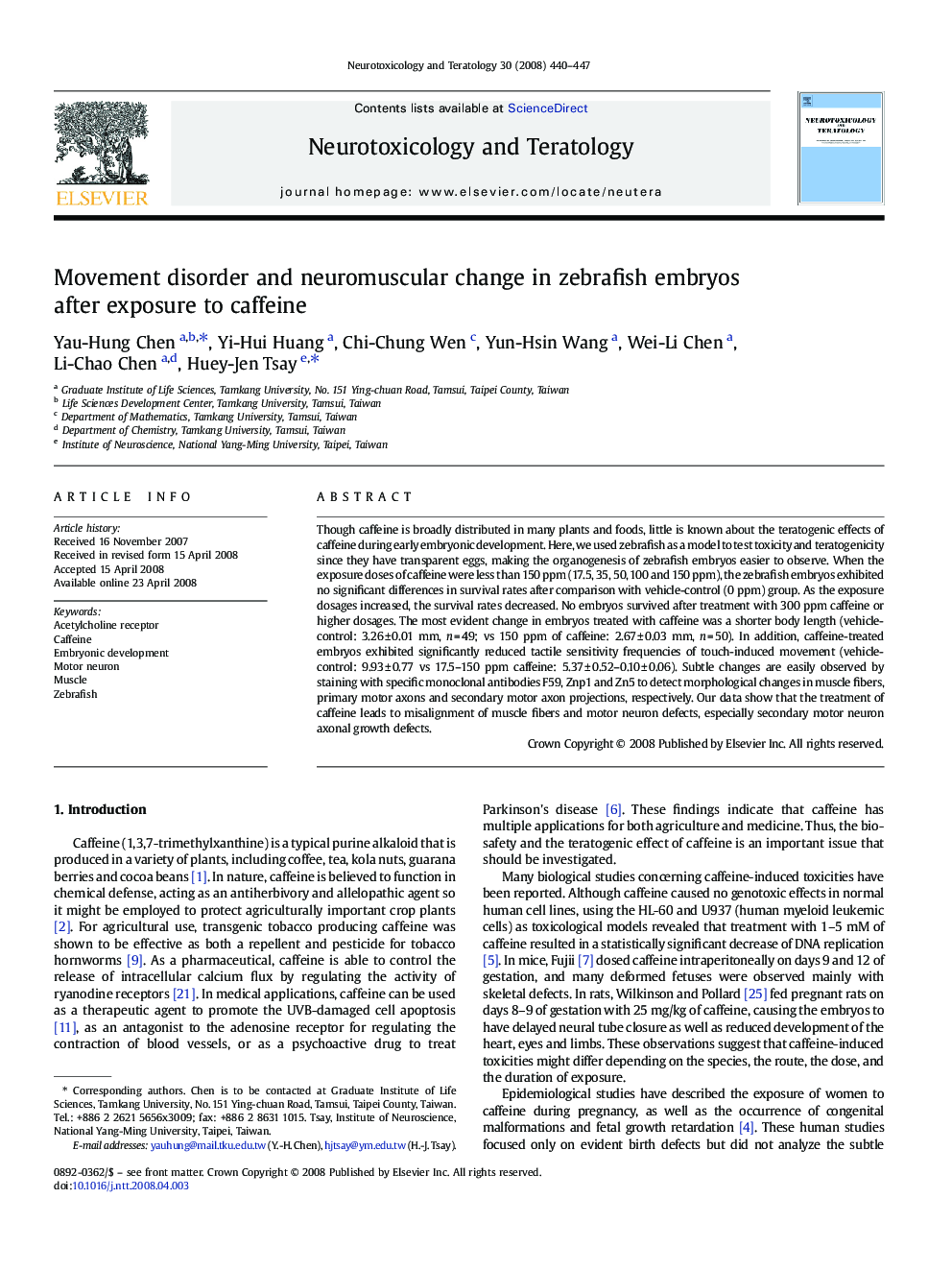| کد مقاله | کد نشریه | سال انتشار | مقاله انگلیسی | نسخه تمام متن |
|---|---|---|---|---|
| 2591853 | 1131832 | 2008 | 8 صفحه PDF | دانلود رایگان |

Though caffeine is broadly distributed in many plants and foods, little is known about the teratogenic effects of caffeine during early embryonic development. Here, we used zebrafish as a model to test toxicity and teratogenicity since they have transparent eggs, making the organogenesis of zebrafish embryos easier to observe. When the exposure doses of caffeine were less than 150 ppm (17.5, 35, 50, 100 and 150 ppm), the zebrafish embryos exhibited no significant differences in survival rates after comparison with vehicle-control (0 ppm) group. As the exposure dosages increased, the survival rates decreased. No embryos survived after treatment with 300 ppm caffeine or higher dosages. The most evident change in embryos treated with caffeine was a shorter body length (vehicle-control: 3.26 ± 0.01 mm, n = 49; vs 150 ppm of caffeine: 2.67 ± 0.03 mm, n = 50). In addition, caffeine-treated embryos exhibited significantly reduced tactile sensitivity frequencies of touch-induced movement (vehicle-control: 9.93 ± 0.77 vs 17.5–150 ppm caffeine: 5.37 ± 0.52–0.10 ± 0.06). Subtle changes are easily observed by staining with specific monoclonal antibodies F59, Znp1 and Zn5 to detect morphological changes in muscle fibers, primary motor axons and secondary motor axon projections, respectively. Our data show that the treatment of caffeine leads to misalignment of muscle fibers and motor neuron defects, especially secondary motor neuron axonal growth defects.
Journal: Neurotoxicology and Teratology - Volume 30, Issue 5, September–October 2008, Pages 440–447